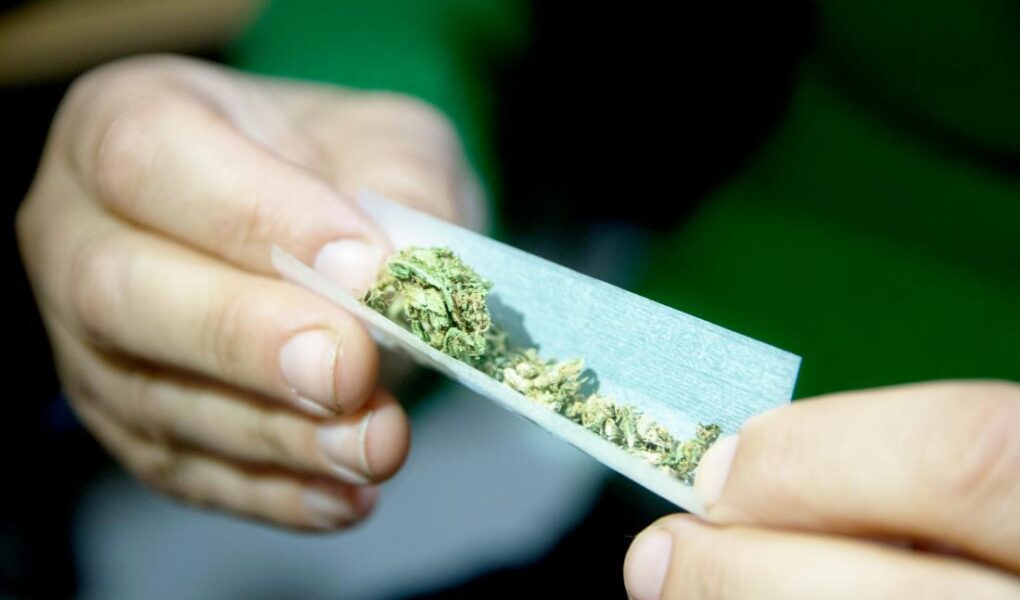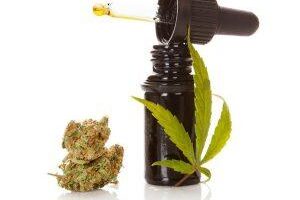Title: Unpacking the Smoke: How Bad is Smoking Weed?
As the conversation around cannabis continues to evolve, shifting from the shadows of prohibition to the bright lights of legalization and acceptance, one question remains at the forefront: just how bad is smoking weed? For decades, the subject has been shrouded in a haze of urban legends and polarized opinions, with fervent advocates extolling its virtues while staunch opponents warn of its dangers. In this article, we aim to sift through the smoke and mirrors, examining the nuanced realities of cannabis use—from its potential health implications to its effects on mental well-being. By navigating the landscape of research, personal anecdotes, and societal views, we hope to provide a balanced understanding of what it truly means to smoke weed in today’s world—stripped of stigma and illuminated by evidence. Join us as we delve into the facts, figures, and faces behind this controversial plant, inviting you to consider the question from all angles: how bad is smoking weed, really?
Table of Contents
- Exploring the Health Consequences of Cannabis Use
- Understanding the Psychological Effects of Marijuana Consumption
- Navigating Legal and Social Implications of Smoking Weed
- Practical Tips for Moderation and Responsible Use
- Q&A
- To Wrap It Up
Exploring the Health Consequences of Cannabis Use
The health consequences of cannabis use are multifaceted, reflecting a delicate balance between potential medicinal benefits and the risks associated with inhaling smoke. When smoked, cannabis releases harmful substances similar to those found in tobacco, leading to potential respiratory issues. Long-term users may experience symptoms such as chronic bronchitis and exacerbated asthma. Additionally, the psychoactive component, THC, can affect mental health, contributing to anxiety, depression, and in some cases, an increased risk of developing psychotic disorders. Understanding these effects is crucial, particularly as cannabis becomes more prevalent and socially accepted.
Moreover, the impact of cannabis on cognitive function is a growing area of concern. Regular use, especially in younger individuals whose brains are still developing, may impair memory, attention, and learning capabilities. To highlight some of the key health risks associated with cannabis use, the table below summarizes these effects:
| Health Risk | Description |
|---|---|
| Respiratory Issues | Can lead to chronic cough and bronchitis. |
| Mental Health Effects | Potential increases in anxiety and depression. |
| Cognitive Impairment | Affects memory and learning, especially in young users. |
| Dependency Risks | Possibility of developing a cannabis use disorder. |
Understanding the Psychological Effects of Marijuana Consumption
Marijuana consumption has a spectrum of psychological effects, which can vary significantly from one individual to another. For some, the experience can lead to a sense of relaxation and euphoria, diminished anxiety, and heightened sensory perception. Conversely, others may encounter negative consequences, such as increased anxiety, paranoia, or exacerbation of underlying mental health issues. The following factors can influence these reactions:
- Dosage: Higher doses are more likely to elicit adverse effects.
- Frequency of Use: Regular users may experience heightened tolerance or withdrawal symptoms.
- Setting: The environment in which marijuana is consumed can shape the overall experience.
- Individual Psychology: Pre-existing mental health conditions play a crucial role in the outcome.
Interestingly, a study comparing the psychological effects of marijuana on users highlights these diverse outcomes. The following table outlines some common psychological responses and their associations:
| Response | Positive Effects | Negative Effects |
|---|---|---|
| Relaxation | Feeling calm | Drowsiness or lethargy |
| Euphoria | Increased happiness | Panic or paranoia |
| Altered Perception | Enhanced sensory experience | Distorted reality |
| Creativity | Stimulated ideas | Mental fog or confusion |
Ultimately, understanding these psychological effects helps individuals make informed choices regarding marijuana use. Both potential benefits and drawbacks must be considered, as they significantly impact mental health and overall well-being.
Navigating Legal and Social Implications of Smoking Weed
The legal landscape surrounding cannabis is ever-evolving, leading to varying implications based on geographical location. As more regions embrace decriminalization or legalization, it is crucial to understand the legal responsibilities that accompany cannabis use. In states where marijuana is legal, users must navigate regulations concerning age restrictions, possession limits, and public consumption guidelines. Additionally, it’s essential for individuals to be aware that substance use can still impact employment opportunities due to company policies that may not align with state laws.
Social perceptions of smoking weed also play a significant role in shaping individual experiences. Public attitudes vary greatly, influenced by cultural background, personal beliefs, and exposure to cannabis. Some points to consider include:
- Stigmatization: In certain communities, cannabis use might still be associated with negative stereotypes.
- Health Discourse: Ongoing debates about the health effects can lead to diverging opinions on its safety and societal acceptance.
- Access to Resources: Legal status can affect access to support services for those who might develop dependency issues or seek rehabilitation.
| Implications | Legal Aspect | Social Aspect |
|---|---|---|
| Possession | Varies by location – legal limits apply | Can influence community attitudes |
| Employment | May face restrictions despite legality | Expectation of responsible use |
| Health Risks | Regulations may require warnings | Public concern over health impacts |
Practical Tips for Moderation and Responsible Use
To enjoy cannabis responsibly, it’s essential to approach its use with mindfulness and moderation. Start by setting personal limits on how often and how much you consume. Consider your environment and choose safe spaces where you feel comfortable, especially if you’re new to it. Maintaining open communication with friends about your experiences and feelings around cannabis can be incredibly beneficial. This not only fosters a supportive atmosphere but also encourages honest feedback that can help you assess your use. Here are some practical tips to keep in mind:
- Educate Yourself: Understand different strains and their effects.
- Know Your Limits: Start with small doses and see how your body reacts.
- Stay Hydrated: Keep water nearby to combat dry mouth.
- Avoid Combining Substances: Mixing with alcohol or other drugs can amplify effects.
Consider using a journal to track your usage patterns, feelings, and experiences. This can provide insights into how cannabis affects various aspects of your life, helping you identify any potential negative impacts. In addition, establishing regular breaks from cannabis consumption can prevent the development of a dependency, ensuring that your use remains enjoyable rather than habitual. Below is a simple table to help visualize the balance needed in responsible usage:
| Usage Aspect | Balance Point |
|---|---|
| Frequency | Limit to weekends or special occasions |
| Dose Size | Start low; adjust based on experience |
| Environment | Use in safe, controlled settings only |
Q&A
Q&A: How Bad Is Smoking Weed?
Q1: What exactly happens to your body when you smoke weed?
A: When you smoke weed, the psychoactive compound THC (tetrahydrocannabinol) enters your bloodstream quickly through your lungs. From there, it travels to your brain and triggers the release of dopamine, leading to feelings of euphoria. However, smoking can also have adverse effects. Your respiratory system may suffer due to inhalation of combusted plant material, leading to potential issues like chronic bronchitis or impaired lung function.
Q2: Is smoking weed more harmful than smoking cigarettes?
A: It’s not a direct comparison, as both have their own sets of risks. Cigarettes contain a mix of harmful chemicals that are known to cause various diseases, including cancer. Weed, while less studied, also exposes the lungs to potentially hazardous substances. Additionally, smoked weed generally has higher concentrations of tar and gets inhaled deeper into the lungs, which may pose significant respiratory risks over time.
Q3: Can smoking weed impact mental health?
A: Yes, it can. While some users report relaxation and stress relief, others might experience anxiety or paranoia, particularly in high doses. Prolonged use has been linked to an increased risk of depression and can exacerbate pre-existing mental health conditions. Research suggests that individuals with a predisposition to mental illness may be particularly vulnerable to these risks.
Q4: Are there any benefits to smoking weed that should be considered?
A: Absolutely. Medicinally, cannabis has been shown to alleviate pain, mitigate symptoms of anxiety, and help with conditions like epilepsy and multiple sclerosis. Some users find that it enhances creativity or helps with relaxation. Yet, these benefits must be weighed against the potential risks, and more research is required to fully understand the implications of long-term use.
Q5: What about addiction and dependency?
A: While many people believe that cannabis is non-addictive, research indicates that approximately 9% of users may develop a dependency on it, a number that rises to about 17% for those who start using in their teens. This means that users can experience withdrawal symptoms and cravings when not using, leading to problematic patterns of consumption.
Q6: Can smoking weed affect your everyday life?
A: Yes, it can. Regular use can impair cognitive functions such as memory, attention, and decision-making. For some, this can interfere with work, school, and personal relationships. Furthermore, there’s always the risk of legal repercussions depending on local laws, which can add stress to everyday life.
Q7: How do I make an informed decision about using cannabis?
A: Educate yourself! Consider your health history, consult a healthcare professional, weigh the risks versus the potential benefits, and stay informed about local laws. If you choose to use cannabis, moderation and mindfulness about your consumption are key to minimizing adverse effects.
Q8: Ultimately, is smoking weed ‘bad’?
A: The answer varies from person to person. For some, it may be a harmless pastime; for others, it could lead to significant health issues. It’s crucial to recognize that even substances perceived as “natural” can carry risks. Careful consideration, informed choices, and understanding your personal limits are essential when it comes to any form of substance use.
To Wrap It Up
As we draw the curtains on our exploration of the impact of smoking weed, it’s clear that the subject remains as nuanced as the plants from which it derives. From potential benefits to the myriad of risks, the debate surrounding cannabis is as complex as the chemical compounds it contains. Just as each individual reacts differently to the herb, so too does society grapple with its implications. Whether you view it through the lens of medical efficacy or cautionary tales, one thing remains certain: informed choices are the best choices. As legalization and normalization continue to unfold, understanding the full spectrum of effects—good, bad, and everything in between—will empower us to engage with this ancient plant responsibly. So, as you ponder your own stance on cannabis, remember that knowledge is power, and the journey to understanding is just as important as the conclusions we draw. Stay curious, stay informed, and navigate the smoke with clarity.



